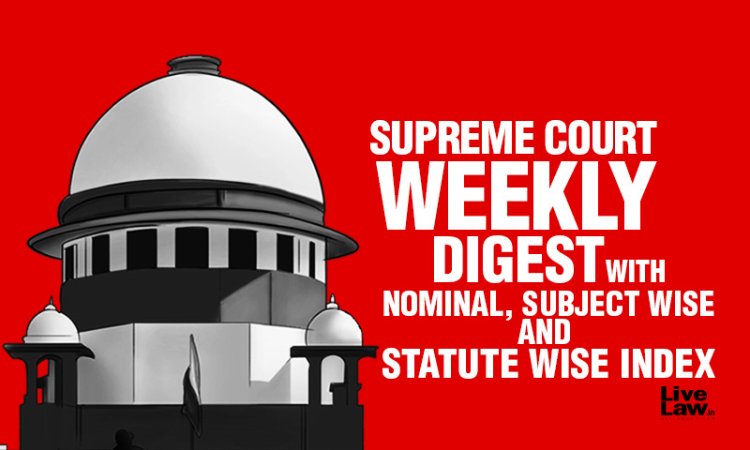Supreme Court Weekly Digest With Nominal And Subject/Statute Wise March 27 To April 3, 2022
LIVELAW NEWS NETWORK
3 April 2022 5:01 PM IST

Next Story
3 April 2022 5:01 PM IST
SUBJECT INDEX Arbitration and Conciliation Act, 1996 - Jurisdiction - When two or more Courts have jurisdiction to adjudicate disputes arising out of an arbitration agreement, the parties might, by agreement, decide to refer all disputes to any one Court to the exclusion of all other Courts, which might otherwise have had jurisdiction to decide the disputes. The parties cannot,...
